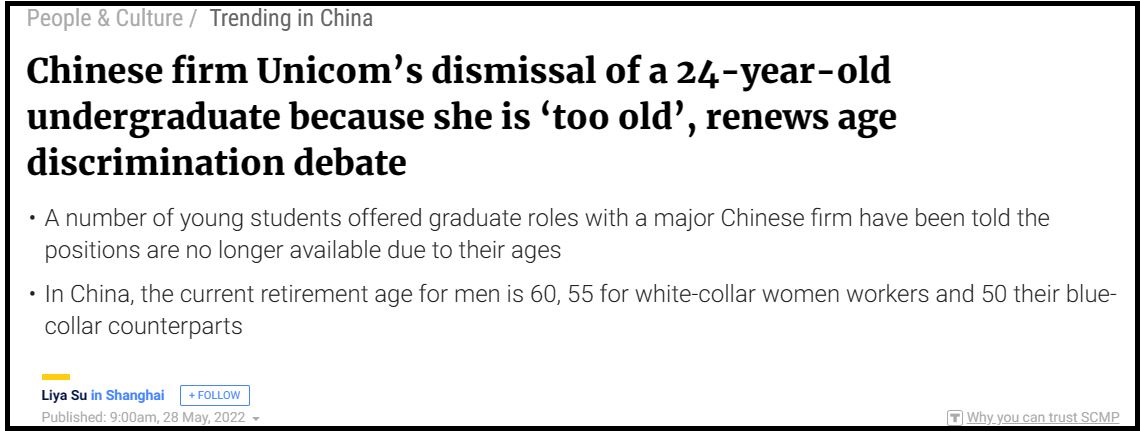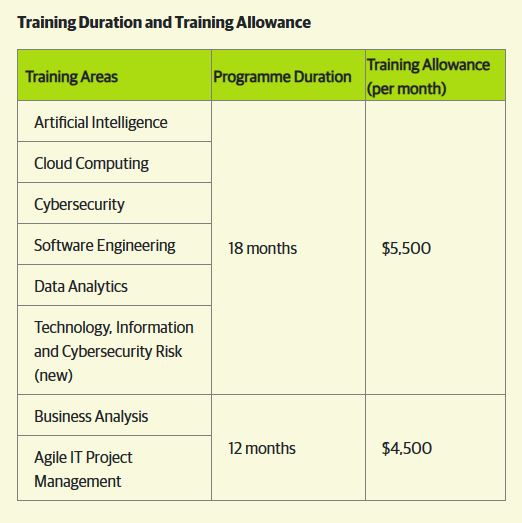As countries vie for the top position or a place for survival, the need for people with hard skills become more pressing. An economy cannot thrive with just tiktokers who look pretty and dance well. A country cannot survive just by inflating numbers such as those of Japan’s property market before their collapse. Production is key. Actual production of goods and services necessary for the survival and functioning of the society in a rapidly evolving scene.
But not just any production will do the job. A country will not get anywhere producing what mankind had achieved 5000 years back. You will get nowhere producing bowls and plates, tables and chairs. A country will need to produce things that other people will rely on, or at least minimally cut their own reliance on others. To do that, a country needs to scale up its science and technology tree. Those who play games, especially games like Civilisation will know, with more technology unlocked, a higher level of production could be achieved, with which wars could be won, diplomacy gets easier, money comes rolling in and ultimately, world domination becomes a reality.

While the big concepts of the game may be similar to reality, the path to actually realising it is of course different. To scale up the technology tree, a significant portion of the country’s people must be proficient in the STEM sector. STEM refers to science, technology, engineering, mathematics. While more people found a better living through being a YouTube singer or a Twitch streamer, such fluffy sectors could only be sustained by the people working in actual production. When there are no more production and no more food, you will realise perhaps the first to die from poverty is that pretty influencer wannabe who knows nothing but to take nice filtered pictures and put unrelated kinky philosophical quotes such as: ‘If you can’t handle me at my worst, then you don’t deserve me at my best.’
Throughout many countries, governments are beginning to worry about the lack of skills people have. This is caused partially but not limited by the push towards mass production, by the discrimination (looking-down) of people working at blue-collar skill jobs and the good life of people in society where they can chase after fluffy dreams instead of actual skills. Lesser people are taking up education in STEM, and graduates of STEM may not even work in STEM sectors. Because STEM is difficult for many.
Governments throughout the world are turning to 2 alternatives – the poaching of talents from other countries (which has already happened decades ago) and the conversion of people from non-STEM sectors into the STEM sectors. Unlike the West, Asia has always been harsh on the age of employees. If you are 35 and above, forget about a career switch. If you are 30, you are old. This is because generally Asia has a bigger population and employers have more people to choose from to squeeze. But even Asia cannot keep up with their ridiculous demands on the population anymore. If they want skilled labour, they have to make a sacrifice.

Europe has started it first, and now certain parts of Asia like Singapore are following suit on the second option. Governments are offering mid-career switch programmes into STEM sectors. These programmes are fully paid for by the government, and people who enrol into the programmes even have a training allowance. I will use the Singapore’s example today, but one can link it to similar programmes in their own countries.
The TFIP stands for Technology in Finance Immersion Programme. In summary, the TFIP is run by the Institute of Banking and Finance (IBF) in partnership with the different agencies of Singapore to attract and train people in the area of technology for use in the financial sector. There are of course other programmes for different sectors due to a severe lack of skilled labour in these areas. But the skills in demand these days are not so different. As TFIP focuses on the financial sectors, participating companies are all financial institutions (FIs). These companies get cheap labour (70% of training allowance paid for by the government) and a low-risk shot at getting skilled labour, while the individuals get a rare second chance at their career path at a lower financial cost.
The areas of focus for TFIP 2023 will be:
- Agile IT Project Management
- Artificial Intelligence
- Business Analysis
- Cloud Computing
- Cybersecurity
- Data Analytics
- Software Engineering
- Technology, Information and Cybersecurity Risk
Participants of the TFIP will choose 2 out of the above 8 tracks which they will enter. We can see that the skills developed are widely applicable even in the research and manufacturing industry, which is a very good thing because this means that the skills participants learn are transferrable. Participants will undergo a period of training (classroom lessons) followed by on-job-training, all of which fully paid for. In other words, the government is paying you to study and to convert yourself to a skilled employee so that you can make a mid-career switch. If you screwed up early in life in your career decision, here is a second chance.

Where does the money come from? From the taxpayers of course. Join and benefit, or ignore it and pay for the benefit of others. I shall not elaborate more on this.
Skilled employees are in demand. Skilled employees have a future. Skilled employees will make much money in the long run. The TFIP is only one of the many programmes that are being conducted in Singapore. There are many more across the world. Even if you are over 40 today in Asia, you still have a chance. If you are not satisfied with the way you are now, grab the opportunity. Work hard once again and change yourself.
That being said, opportunities for adults are often not as straightforward. While the TFIP certainly allows the middle-age group to join, one does not simply walk in with 0 background knowledge. Having 0 experience does not mean it is ok to have 0 knowledge. Go learn some skills and knowledge by yourself. Take up a short course in programming, in data analytics, in whatever skill you need. The recruiters are offering a way out, but they are not there to spoon-feed you. Hard work and dedication is necessary. Pro-activeness is critical.
Another good thing about the TFIP is that the participating FIs are big name companies. Working in big name companies does bring about advantages, even if it is superficial. Oh wow this guy worked for Google before! His CV included being a software developer in Microsoft! Big name companies provide first the resources while working in it and second the reputation if you are going to jump in the future.
The TFIP started with only 5 participating FIs in 2019. As demand gets stronger and supply gets lesser, the list of participating FIs for TFIP 2023 has increased to 35. Out of the 35 participating FIs, applicants will choose their top 3 choices. Make your choices carefully. Put all 3 super big names, and you might end up with none, simply because there are always people better than you out there:
- Bank of America
- Bank of Singapore
- BNP Paribas Singapore
- Barclays
- Credit Agricole Corporate and Investment Bank
- Citibank
- DBS
- Deutsche Bank
- Dymon Asia
- Goldman Sachs
- Great Eastern Life Assurance Co Ltd
- GXS Bank
- IFS Capital Limited
- Income Insurance Limited
- J.P. Morgan
- LGT Bank
- Manulife Singapore
- Maybank Singapore Limited
- MetaVerse Green Exchange Pte. Ltd.
- Millennium Capital Management (Singapore) Pte Ltd
- Mizuho
- MUFG
- Nomura Singapore Limited
- OCBC Bank
- Partners Group Singapore Pte Ltd
- Point72 Asia (Singapore) Pte Ltd
- Prudential Assurance Company Singapore
- Quest Ventures
- Schroders
- Singapore Exchange
- Standard Chartered
- Sumitomo Mitsui Banking Corporation Singapore
- UBS AG
- United Overseas Insurance Limited
- UOB Limited
The TFIP recruitment for 2023 is opened. Applications will close on 23 July 2023, after which they will conduct a simple aptitude test on the respective areas, such as coding. But these tests are generally simple and meant to filter out those who have 0 background knowledge and yet refuse to learn anything beforehand.
If you have 0 background knowledge now but do not wish to miss this opportunity, fret not. Apply now, then quickly learn the basics. For example, the basics of SQL, Power BI and Python are easy to learn. You can do it within 2 months. While mastering the skills or being proficient enough for practical purposes is another matter altogether, one only needs the basics to get through the tests. Coursera and Udemy provides many good resources for you to learn. Make use of them.
Whether you need this opportunity or not, whether you want to take it up or not, depends on yourself and each individual’s situation. What matters most in the end is, you do not regret missing a second chance simply because you are lazy.
Good luck.

Showing 1 - 2 out of 2
Page 1 out of 1
| - | Resources | Price | |
|---|---|---|---|
|
|
$5.00
|
||
|
|
$1.00
|


Hi, thanks for sharing this wonderful article. I too felt it was a second chance at the start. But the reality is, this also depends on the company. You accurately cited “These companies get cheap labour”. There is no promises of conversion and companies could rather continue to hire another new batch cycle every year. Just food for thought.